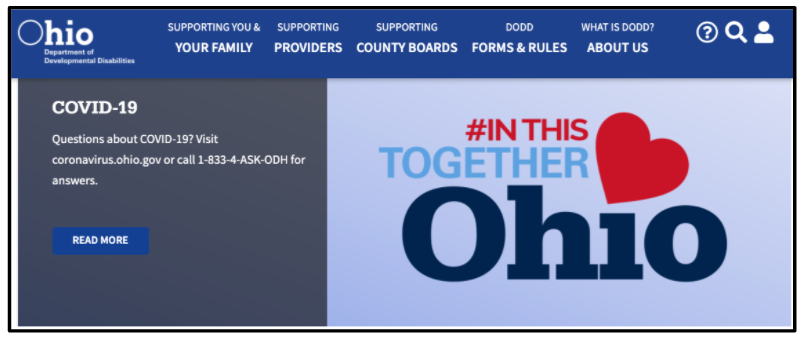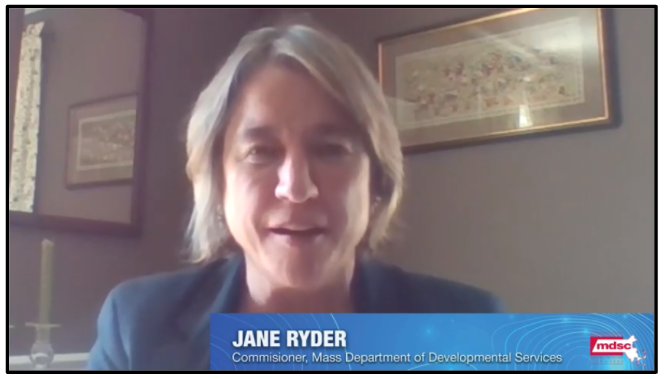How 3 States Are Tackling the Future of Human Services
Every Human Services provider in the country is facing two challenges.
The first is immediate and ubiquitous: responding to COVID-19. In this case, “responding” can mean everything from securing PPE and distributing it to direct support professionals to rethinking entire care delivery business models in a world where everyone has to stay six feet apart.
The second challenge has been with us for more than a decade: preparing our industry for a digital future. From the workforce crisis to increased oversight by Managed Care Organizations to the mere fact that we now have the technology to track, report, and predict information like never before, providers and state agencies nationwide are mobilizing to not only make their services digital but to create new innovations that push the industry forward.
Below is a snapshot of how three states are preparing for the future of Human Services—addressing both the immediate challenges of COVID-19 and the longer-term needs of a changing industry.
Providers and state agencies nationwide are mobilizing to create new innovations that push the industry forward.
This is far from a complete picture. It’s a glimpse at some innovative solutions from both private and public agencies that are responding in a pivotal moment and envisioning a new way forward.
I. Ohio
COVID-19 Relief Payments to Ohio Providers & Direct Support Professionals
In late August, the Ohio Department of Developmental Disabilities (DODD) secured approval from the Centers for Medicare & Medicaid Services (CMS) to provide emergency relief payments to providers and agencies that deliver community-based and home-based support services. Roughly $74 million will be made available to provider organizations and independent professionals that are deemed eligible.
Ohio DODD Streamlining & Centralizing Provider Requirements
Looking to the future, the Ohio DODD just announced its plans to implement a new a single-entry provider network management (PNM) module, describing it as “a strategic initiative designed to streamline the workload of Ohio providers and eliminate duplicate processes, freeing up time so providers can invest it in work that matters most—individualized care.”

The network will give providers a single point of entry and aims to simplify the enrollment, claims, and credentialing processes. Planned for March 2021, this is a major investment in digital transformation that could go a long way towards digitizing operations and making the care process much more integrated and easier to navigate.
Learn more about the plan here.
II. Massachusetts
MA Human Services Providers Building a Digital Infrastructure
While no one can claim to have been completely prepared for the Coronavirus, several Massachusetts providers had already been putting digital infrastructure in place, enabling them to continue delivering their services—albeit virtually—during the pandemic.
Organizations like Seven Hills in Worcester, MA, took quick action to support their staff, while also finding opportunities to improve care delivery over the long term. They also embraced telehealth, as did other providers including NuPath Inc., in Woburn, MA, where they launched an array of virtual programming to keep their community engaged. Having made technological innovation a cornerstone of their long-term strategy, organizations like these have been able to meet the needs of the people they serve even in these trying times.
MA Dept. of Developmental Services Driving Innovation
The Massachusetts Department of Development Services (DDS) is hard at work to push their state to be at the forefront of Human Services innovation.
DDS Commissioner Jane Ryder has been a fierce advocate not only for advancing equality and equity for people with disabilities but for increasing funding and access to leading technologies that can transform their lives.
While Commissioner Ryder’s top priority has been ensuring the health and wellbeing of the people her organization supports, she has also used this time to push for the larger innovations she knows her industry needs. Early into 2020, Ryder led a pilot program to test the use of Navigating Life, a mobile app designed exclusively for Human Services providers and state agencies to help improve communication, operations, and data management across entire organizations.
Speaking at the Opening Ceremony of the Massachusetts Down Syndrome Congress’ Annual Conference this June, Ryder laid out how the pandemic has revealed what’s possible with technology and her vision for expanding that technology across the state.

“We are supporting our providers to expand remote services to provide activities to individuals in their homes,” she explained in the Congress’ first-ever virtual conference. “As time goes on these remote services will continue to be developed and expanded and DDS will be prioritizing the use of technology across our spectrum of services. Our world is changing and we need to think differently.”
You can watch Commissioner Ryder’s full remarks here.
III. Texas
Special Olympics Texas Goes Virtual

One of the most creative and resourceful responses to the Coronavirus outbreak in Texas was from Special Olympics Texas, which created S.O. Connected, a digital platform full of videos and virtual programs for not only Special Olympics Texas athletes but for the larger Texas ID/DD community.
Launching quickly in March soon after the pandemic hit, S.O Connected began offering a wide range of virtual games and workouts that people living with disabilities can do in the safety of their homes while remaining connected to the programs they love.
The Texas MCO Transforming Managed Care
The changing times have also highlighted how some Managed Care Organizations are stepping up to serve their communities.
One of those MCOs is Superior HealthPlan, a Texas-based managed care company delivering healthcare services throughout the state, which recently announced several initiatives to support Texans living with disabilities who have been affected by the pandemic.
Some of those initiatives centered around delivering groceries, meals, and PPE to the people they serve. But there is a digital component, too: providing access to the Provider Accessibility Initiative COVID-19 Web Series, where viewers can find timely recommendations from experts with disabilities on how providers and organizations in Texas can deliver disability-competent care during the pandemic and future emergencies.




Leave a Reply
Want to join the discussion?Feel free to contribute!